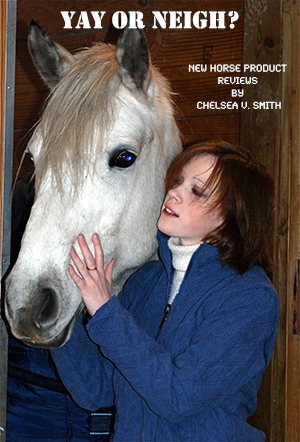Bowing Out of Boarding Your Horse
by Nikki Alvin-Smith
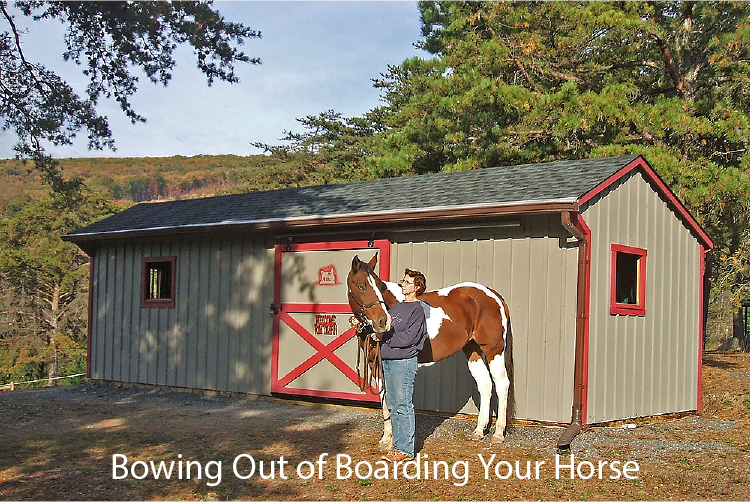
Boarding your horse at livery can present challenges in how the horse is cared for and for many horse owners their specific needs and wants can become onerous tasks for the busy boarding barn owner to manage effectively.
When you keep your own horse in your own backyard it is certainly more work than boarding it and trusting others to do the grunt work. But though you may lose benefits of socialization with other equestrians and use of facilities such as an indoor arena the extra workload pays dividends in being able to micromanage your own horse’s care.
Backyard horse keeping also cuts out the commuting time needed to visit the barn. Although this time will realistically be usurped by time needed to labor after the equines in your care.
Here are insights into how you can bow out of boarding your horse and ideas for attaining your dream of your horse living outside your back door.
Horses Need Space
The general rule of 2 acres for the first horse and 1 acre per horse thereafter will only work for pasture needs if the land is of decent quality. The poorer the soil type, vegetation, the more land will be needed. Satisfying the local zoning laws and ordinances will need to be addressed, and the local requirements often reflect the details of how urban or suburban the neighborhood and how to protect all inhabitants from unwanted noise, odors, and ‘invasion’ of livestock from chickens to cows to horses.
If your own property is limited and the back garden cannot accommodate the number of horses you wish to import into the space, then it may be an option to purchase some acreage from a neighbor. This is especially viable if you are fortunate enough to have property adjacent to farmland or to a neighbor with vast tracts of land available.
In some instances, a neighbor with limited property may still be willing to sell an acre or two of their lands. It is always worth investigating what opportunities of land purchase exist next door before going across the road or down the road.
In England and the Netherlands, both countries with high density populations, the backyard horse owner co-habits relatively peacefully with their neighbors. A simple loose box or two, what we would call a shedrow barn, is often planted in the back of the property and a small paddock fenced around it to give the horse freedom to move around. Dry lots may be surfaced with specially formulated footings to protect the limited space from mudding up, or grass paddocks may be fallowed using electric wire to separate smaller areas within a few acres of board fenced property.
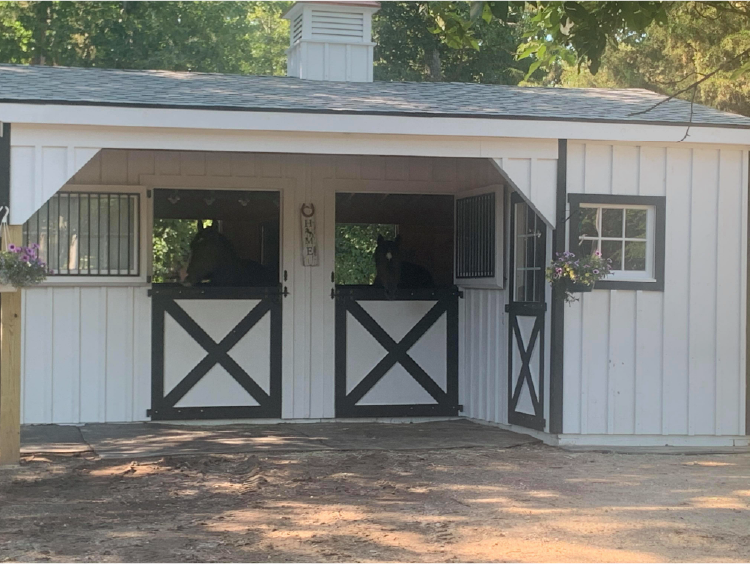
Digging up the lawns and gardens the way it was completed en masse during WWII in order to “Dig For Victory” and the use of allotment gardening, is often completed today by homeowners in order to provide additional off-street parking to keep their vehicles secure from vandalism, inadvertent damage and/or theft. The idea of situating a smallholding of acreage in a suburban area is definitely on the decline, but it is still an acceptable practice in many regions of the U.S.A.
Storage And Shelter Needs
If you keep horses on a small acreage the needs for additional forage will be higher than if the same horses enjoy hectares of pasture to roam and graze. This hay or other types of forage will need to be kept dry. Similarly, the horse(s) will require some form of shelter from rain, snow and especially the hot rays of the summer sun.
The humble run-in shed is that most valuable of structures. Not only is it very budget friendly, it offers multi-use functionality and can be sized according to needs and the footprint space available.
Another facet to consider is the addition of an overhang. It is a smart choice and one you won’t regret. As much for the caregiver as the horses, it provides many benefits.
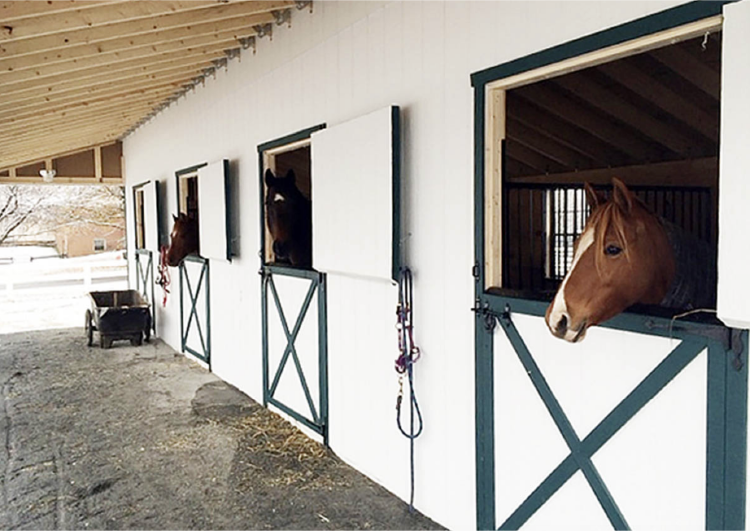
Remember along with horses comes the need for buckets and feed, water supplies and electric service, tack and equipment.
Don’t Forget Manure Management
It will be necessary to formulate some method of manure management wherever horses are kept. However, with a small acreage the matter becomes even more important. Here are some valuable pointers on how to accomplish manure management successfully.
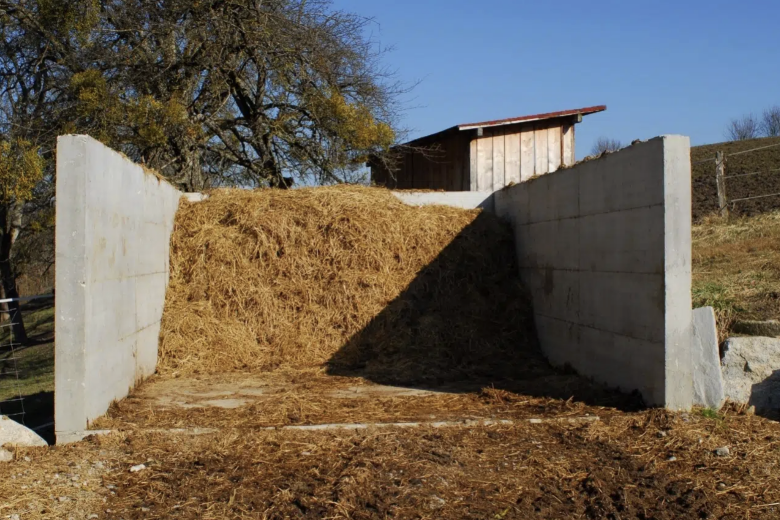
Small Spaces Can Be Happy Horsey Places
Most horse owners’ eye large board fenced horse properties they pass along the roadside during their travels with envy. How lovely to have all that room to ride and keep horses. But the reality of the challenges that come along with owning a large horse property are often overlooked.
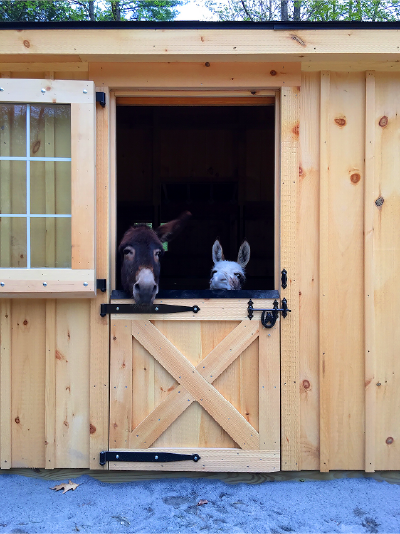 Consider the high property taxes; the amount of time and expensive labor necessary to maintain the safety of fencing and for aesthetic as well as functional upkeep; staff management to accomplish the daily routines of care and the endless supplies that are needed to feed and care for the horses on site.
Consider the high property taxes; the amount of time and expensive labor necessary to maintain the safety of fencing and for aesthetic as well as functional upkeep; staff management to accomplish the daily routines of care and the endless supplies that are needed to feed and care for the horses on site.
A smallholding can be the ideal venue to keep a horse or donkey or two and enjoy Equus ownership on a scale that can be easily managed and fit into regular family life. The added bonus of being able to include other family members in your horse life can be a wonderful experience for everyone.
Safety First
Not everyone that wishes to keep a horse or pony themselves has the necessary experience to do so in a safe manner. It is essential that all the key areas of horse care management are known and understood before the horse(s) is brought home.
It is very easy to criticize the busy boarding barn owner for their short comings in your horse’s care. But perception of the complexity of how horse’s needs must be managed for a successful endeavor both health wise and training wise is often a narrow view of what is a multi-faceted task that requires years of knowledge and experience.
There are many resources available online to address questions that pop up, but obviously you have to know what question to ask. General knowledge in horsemanship learned through books or online is great, but it does not beat hands-on experience.
If you feel you may be shortchanging your horse with your education in horse care and training, volunteering at a local barn such a PATH certified therapeutic riding center or neighborhood horse rescue can not only help you learn the best way forward, but it can also be extremely rewarding. The experience will also acquaint you with vets, farriers, massage therapists, and other equine service providers in the area.
Leave On A Good Note
When you move your horses out of the boarding barn always try to leave on a good note. Follow the rules for notification of your plans to leave, pay up all the expenses that are due the barn owner and don’t run down the boarding barn in conversations with others even if you feel your points are valid.
Remember at some point you may want to return to the barn. When you head away on vacation you may want an option to stable your horse while you are gone. You may need temporary training help for a few months with either a horse your presently own or one you acquire in the future. During winter months or in a weather emergency you may want to seek shelter at the facility or utilize its indoor arena.
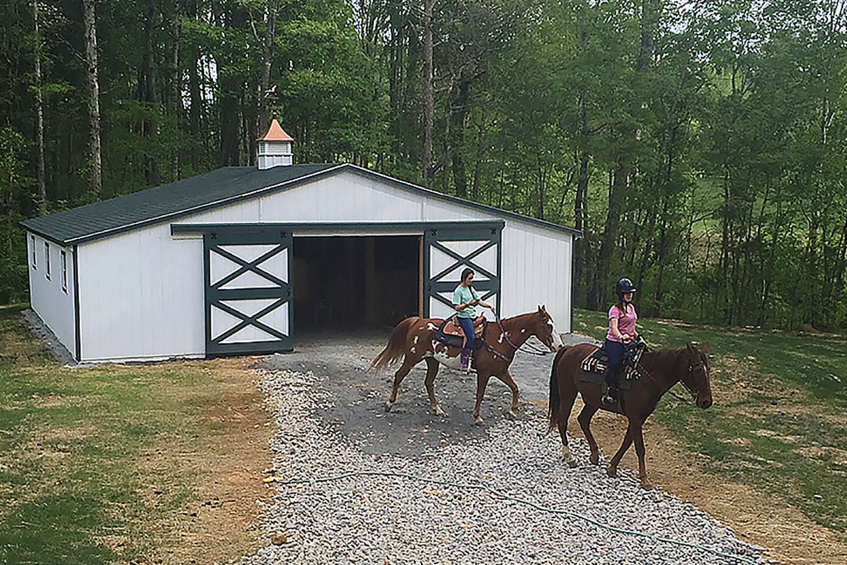
This article provided courtesy of Horizon Structures

